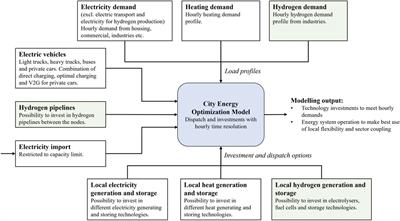Enhancing Energy Systems Efficiency Through Hydrogen Valleys in Sweden
Key Ideas
- Transitioning to electrolysis-produced hydrogen in Swedish industries impacts local energy systems positively.
- Investing in a hydrogen pipeline can reduce total system costs by 4%-7% and enhance renewable energy utilization.
- Formation of a 'Hydrogen Valley' optimizes energy system configurations in urban areas with hydrogen-intensive industries.
- The study highlights the importance of local renewable energy availability and storage options in shaping energy systems.
The study focuses on the transition towards electrolysis-produced hydrogen in Swedish refineries and chemical industries and its impact on local energy systems. By analyzing three urban areas with hydrogen-intensive industries, the study assesses the effects of meeting future hydrogen demand individually in each node versus forming a 'Hydrogen Valley' that allows hydrogen trading via a pipeline. Using a techno-economic optimization model, the research evaluates investments and dispatch of technologies to minimize total system costs, considering offshore wind power availability and pipeline investments. Results indicate that investing in a hydrogen pipeline can reduce total system costs by 4%-7% while promoting the utilization of local renewable electricity resources. The study emphasizes the significance of forming a 'Hydrogen Valley' to optimize energy system configurations and enhance efficiency in meeting electricity, heating, and hydrogen demands. It underscores the role of local renewable energy availability, grid capacity, and storage options in shaping energy systems toward a sustainable future.
Topics
Investing
Renewable Energy
Wind Power
Refineries
Chemical Industries
Techno-Economics
Urban Energy Systems
Latest News
